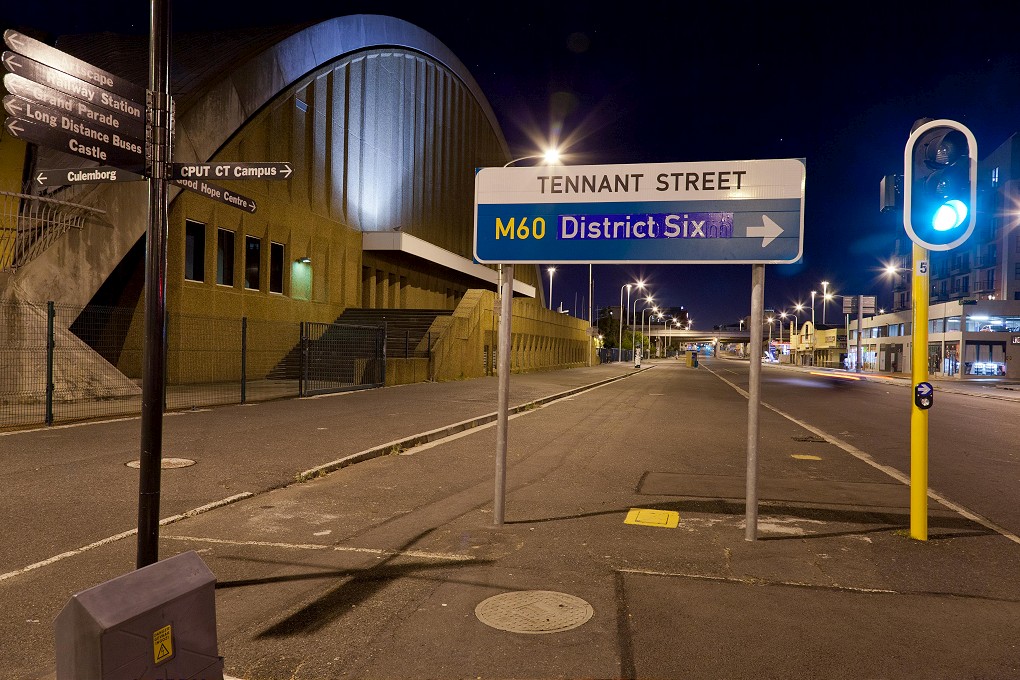At a highly-charged meeting at the Cape Peninsula University of Technology (CPUT) on Saturday, several important resolutions were taken to move phase 3 of the District Six restitution process forward. Whilst things got off too a late start, 1100 beneficiaries gathered CPUT hall – only those who lodged land claims before the 1998 cut off date. The meeting was called by the Minister of Rural Development and Land Reform, Gugile Nkwinti, the Western Cape government and the City of Cape Town, but Premier Helen Zille and Mayor Patricia De Lille were not in attendance. Organisations representing claimants were not invited either.
On the agenda were four key issues:
The equity of restitution for land owners and tenants; sectional titles versus full title deeds; the establishement of a Community Property Association (CPA) and the reimbursement of monies paid by claimants to the D6 Beneficiary and Redevelopment Trust.
Equity
The equity of restitution seemed to be the most divisive issue. There was robust debate on what homes tenants and owners should receive.
On the issue of equity, the minister resolved that he would compensate everyone on an equitable basis. While there was a majority of tenants than owners in the meeting, it was decided that all beneficiaries would receive a home of 72 square metres. The claimants reference group will workshop what equitable restitution will entail in order to keep land owners satisfied in the process.
“It’s not a voting issue, its a matter of equity,” said Minister Nkwinti.
“Put yourselves in the shoes of the owner. What you should fight about (with us) is whether your own rights have been trampled upon. I’m not in a position to breach the Constitution knowingly.”
The concerns were that row houses would be given to owner claimants, and that former residents who owned more than one house would only be entitled to one land clai. Another issue was that ground floor homes have been earmarked only for elderly people.
Each apartment would be 72 square meters in size, with a balcony. This could be converted into an extra room to 92 square meters, however any renovations are at the claimants own cost.
Sectional versus title deeds
A unanimous decision was made to do away with sectional titles and rather give claimants full title deeds. Minister Nkwinti said sectional titles were costly for claimants, due to the high municipal levies. Phase one and two had a sectional title approach. If claimants are granted the full title deeds, road works, sewerage water and other public services must be maintained by the city council. Next Monday, the City of Cape Town and department officials are expected to meet to discuss infrastructure problems to improve services to phase 3.
Mandate given to the CPA
It was also proposed that a government structure be established that deals directly with the claimant’s issues and not any representative organisations.
The majority voted in favour of a Communal Property Association (CPA), based on the Communal Property Act.
Land earmarked for commercial development would be tranferred to the CPA and it would hold the land for the community. A committee will act on behalf of the community it represents, similar to the board of directors of a company. The CPA would be given a mandate to act on the members behalf. Minister Kwinti felt it was easier for the department to deal with a CPA as opposed to the D6 Trust, which deals with the Ministry of Justice. A constitution is set up and processes would be followed, he reassured.
Reimbursement of monies
Another sticky point was the call for a refund of monies paid to the D6 Trust.
During the course of the meeting, a small faction broke away to discuss the reimbursement of these funds. According to Minister Nkwinti, there were two types of contributions made to the organisation; a lump sum contribution and partial payments for a home. This group gave a mandate to Minister Nkwinti to approach the Master of High Court and the Minister of Justice to order the Trust to pay back the money to claimants.
Claimants were given opportunities to pose questions during the course of the meeting. The son of a 91 year old claimant who has passed on said he felt three storey houses should not be built. He feared that the density of houses and influx of residents would make District Six a “township”.
Government was challenged on why there is currently only 42 hectares remaining, when District Six used to be 150 hectares in size.
One claimant demanded there be a moratorium on all commericial developments in District Six. She said new developments were cropping up, with beneficiaries not informed.
“If we want our neighbours and families to return, we need to stop all construction. We need to give District Six back to the people!”
Minister Nkwinti said he also plans to meet with claimants who received homes in the first and second phases, under the D6 Beneficiary and Redevelopment Trust to discuss their concerns.
The next claimant meeting for the third phase will follow in November. VOC






 WhatsApp us
WhatsApp us 


1 comment
Re: beneficiaries would receive a home of 72 square metres
Minister Gugile Nkwinti of the Department of Rural Development and Land Reform should help to restore the dignity of the District Six claimants that was so cruelly snatched away by the apartheid Group Areas Act, by providing them with with decent, free-standing houses with a garage and a garden.